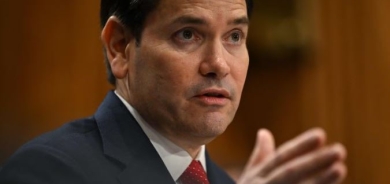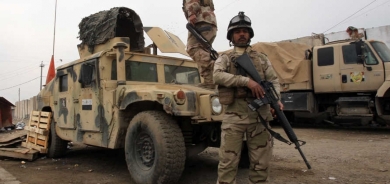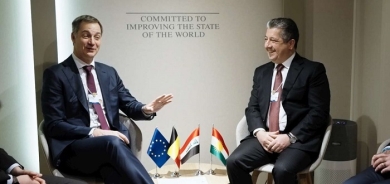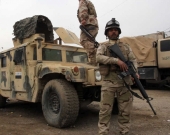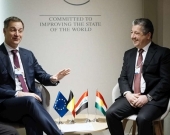Lasting Gaza truce tops Cairo talks agenda

Egyptian intelligence officials met in Cairo with a high-level Israeli delegation late on Tuesday, a day after conferring with Palestinians who included envoys from Hamas and the Islamic Jihad group, Egyptian officials said on Wednesday.
"The indirect talks between the Palestinians and Israelis are moving forward," one Egyptian official said, making clear that the opposing sides were not meeting face to face.
"It is still too early to talk about outcomes but we are optimistic."
Egyptian and Palestinian sources said further discussions were expected to be held in Cairo on Wednesday, with expectations of an initial response by Israel to Palestinian demands, which it has so far shown no sign of accepting.
Meanwhile international Middle East peace envoy Tony Blair and UN Middle East peace process coordinator Robert Serry held talks with Egyptian officials on Wednesday.
Israel withdrew ground forces from the Gaza Strip on Tuesday morning and a 72-hour Egyptian-brokered ceasefire with Hamas went into effect as a first step towards a longer-term deal.
In Gaza, where about a half-million people have been displaced by a month of bloodshed, some residents left UN shelters to trek back to neighbourhoods where whole blocks have been destroyed by Israeli shelling and the smell of decomposing bodies fills the air.
Streets in towns in southern Israel, which had been under daily rocket fire from the Gaza Strip, were filled again with playing children.
Palestinian demands
Palestinians want an end to the Israeli-Egyptian blockade on impoverished Gaza and the release of prisoners, including those Israel arrested in a June crackdown in the occupied West Bank after three young settlers were kidnapped and killed.
Israel has resisted those demands.
"For Israel the most important issue is the issue of demilitarisation. We must prevent Hamas from rearming, we must demilitarise the Gaza Strip," Mark Regev, a spokesman for Benjamin Netanyahu, Israeli prime minister, told Reuters television.
John Kerry, US secretary of state, in an interview on the BBC's HARDtalk programme, also spoke of a need for Hamas to decommission its rocket arsenal.
"What we want to do is support the Palestinians and their desire to improve their lives and to be able to open crossings and get food in and reconstruct and have greater freedom," Kerry said.
"But that has to come with a greater responsibility towards Israel, which means giving up rockets, moving into a different plane."
Kerry said, however, all this would "finally come together" as part of wider Israeli-Palestinian peace efforts that he has spearheaded but which have been frozen since April over Israel's opposition to a unity deal between Hamas and President Mahmoud Abbas's Palestine Liberation Organisation.
Hamas, which seized the Gaza Strip from forces loyal to Abbas in 2007, has ruled out giving up its weapons.
An Israeli official, who declined to be identified, said Israel wanted humanitarian aid to flow to the Palestinian enclave's 1.8 million inhabitants as soon as possible.
But, the official said, the import of cement - vital for reconstruction - would depend on achieving guarantees that it would not be used by fighters to construct more infiltration tunnels leading into Israel and other fortifications.
Heavy economist cost
Gaza officials say the war has killed 1,867 Palestinians, most of them civilians.
Israel says 64 of its soldiers and three civilians have been killed since fighting began on July 8.
Egypt has positioned itself as a mediator in successive Gaza conflicts but, like Israel, its current administration views Hamas as a security threat.
Besides the loss of life, the war has cost both sides economically. Gaza faces a massive $6bn price tag to rebuild devastated infrastructure.
Israel has lost hundreds of millions of dollars in tourism and other sectors and fears cuts in overall economic growth this year as well.
Palestinian officials said a donor conference to raise funds for Gaza's reconstruction would be held in Oslo next month.
Al Jazeera


